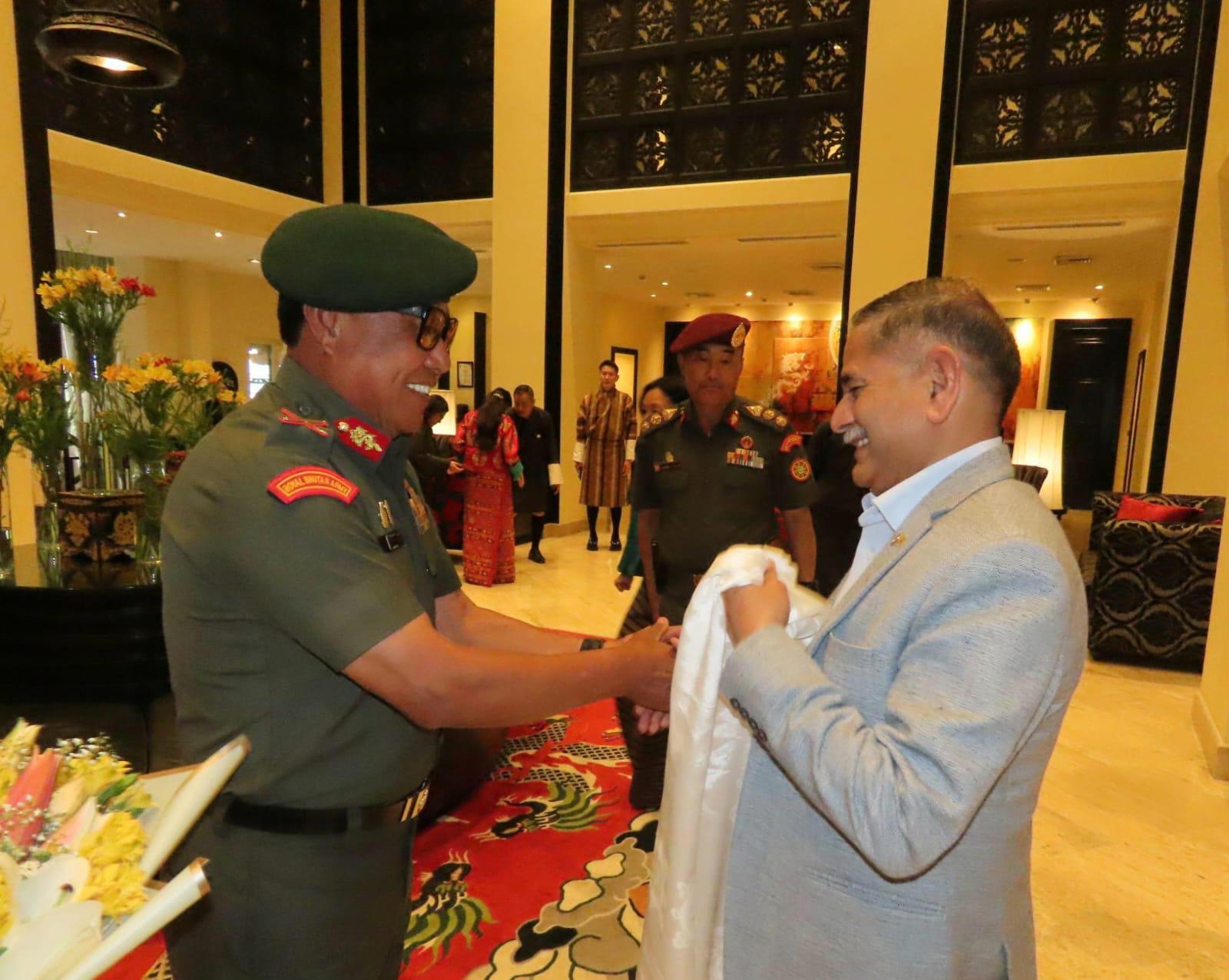India’s Chief of the Army Staff (COAS), General Upendra Dwivedi, has arrived in Bhutan for a four-day official visit aimed at reinforcing strategic defence ties and military cooperation between the two Himalayan neighbours.
The trip comes at a time when growing Chinese assertiveness in teh region remains a shared concern.
What did General Dwivedi’s visit to Bhutan involve?
On July 1, General Dwivedi met both King Jigme Khesar Namgyel Wangchuck and the former King, Jigme Singye Wangchuck, during a series of high-level engagements. He also held substantive talks with Lieutenant General Batoo Tshering, Chief Operations Officer of the Royal Bhutan Army (RBA), and conferred with senior Indian diplomatic officials posted in Thimphu.

The next day, the COAS visited key bilateral institutions such as the Indian Military Training Team (IMTRAT), Project DANTAK, the Wangchuk Lo Dzong Military Hospital, and the Wangchuk Lo Dzong Military School. He also visited the Jamtsholing Gyaltsen Academy in Samtse district and reviewed Bhutan’s Gyalsung National Service programme.
Why is this visit significant for India-Bhutan relations?
The visit signals a reaffirmation of India’s enduring commitment to Bhutan’s sovereignty and security, especially as China continues to expand its military infrastructure near the tri-junction at Doklam. India’s partnership with Bhutan is anchored in shared security interests, and the bilateral defence relationship serves as a regional stabilising force in the eastern Himalayas.
IMTRAT, a unique forward-deployed Indian Army unit stationed in Bhutan, plays a central role in training Bhutanese troops and mentoring the RBA. Project DANTAK, meanwhile, underscores India’s broader development assistance, with its infrastructure projects extending civilian and strategic benefits across Bhutan.
How do India and Bhutan cooperate militarily?
India and Bhutan maintain robust defence ties, with regular joint training, high-level visits, and coordination on operational readiness. The IMTRAT team conducts exercises, supports Bhutanese military education, and helps develop doctrine and leadership within the Royal Bhutan Army.
This cooperation has grown in strategic importance, particularly after the 2017 Doklam standoff involving Indian and Chinese troops. The military partnership now acts as a bulwark against growing Chinese influence in Bhutan’s border areas and reflects New Delhi’s strategy to reinforce its alliances in the face of an increasingly contested Himalayan frontier.